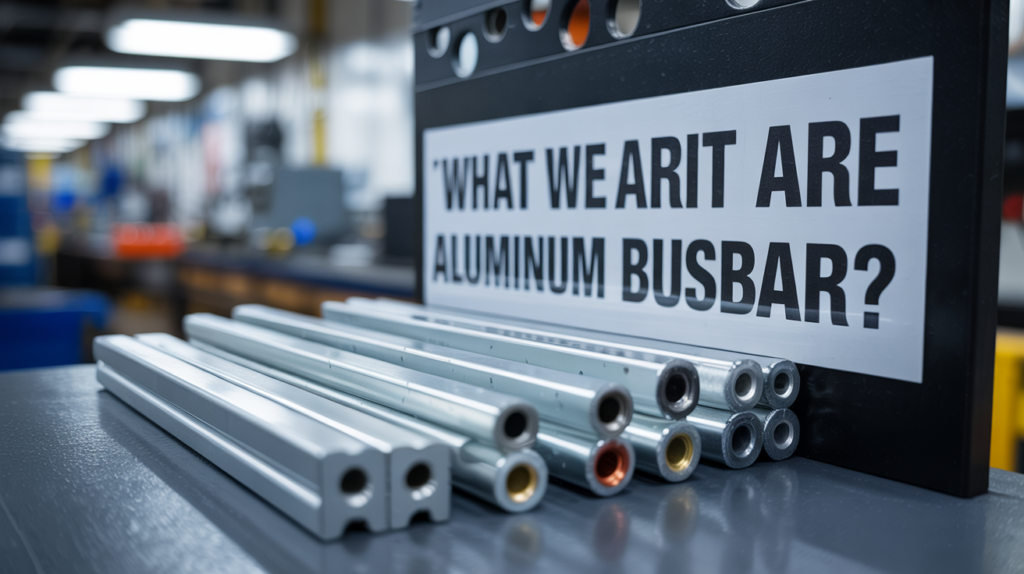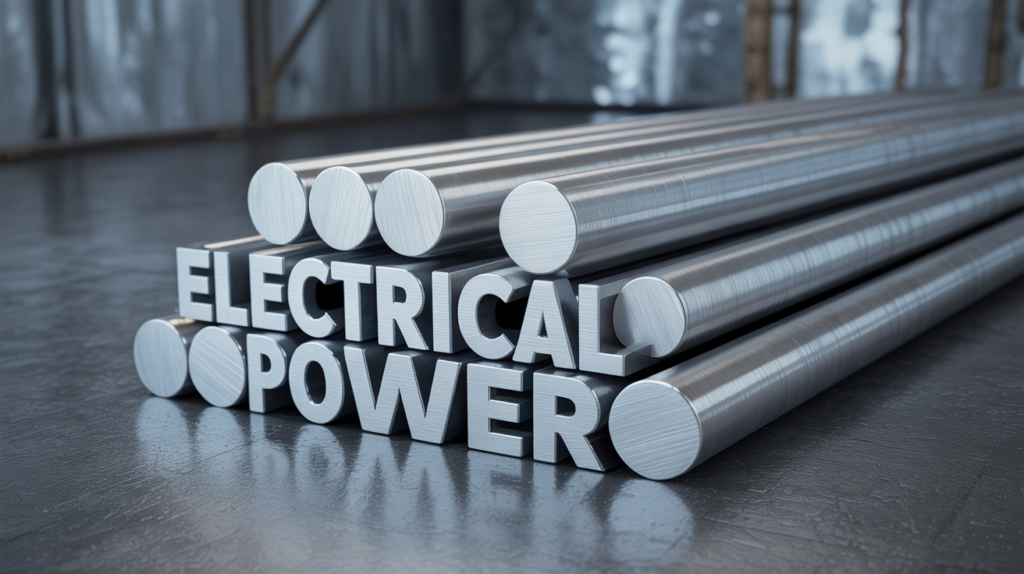When it comes to efficient and reliable power distribution, Aluminum Busbars offer a compelling combination of performance, cost savings, and sustainability. At AP Precision Metals, we’ve developed a deep expertise in high‑precision manufacturing of aluminum busbars that meet the most demanding industrial, commercial, and energy applications.
What Are Aluminum Busbars?
Aluminum busbars are rigid metal conductors—commonly flat or extruded bars—used to carry large currents in electrical equipment and power systems. They serve as critical components in panels, switchgear, transformers, renewable energy installations, and more. With excellent conductivity and lightweight properties, they offer advantages over traditional copper busbars while ensuring safe, efficient operation.

Key Advantages of Aluminum Busbars
- Cost‑Effectiveness: Aluminum's abundance and lower material cost make it significantly less expensive than copper, especially in large‑scale installations.
- Lightweight: Roughly one‑third the density of copper, aluminum busbars reduce handling labor, support‑structure requirements, and installation time.
- Strong Electrical Conductivity: While slightly less conductive than copper, aluminum busbars still deliver excellent performance—especially when properly sized.
- Corrosion Resistance: Aluminum naturally forms a protective oxide layer. When enhanced via plating or galvanizing, these busbars are well‑suited for harsh or outdoor environments.
- Sustainability: Aluminum is highly recyclable and seen as one of the most sustainable metals in busbar applications.
- Design Flexibility: Aluminum alloys such as 6063‑T52 offer ideal mechanical strength, formability, and thermal performance for custom busbar geometries.
Applications of Aluminum Busbars
Aluminum Busbars are used across many applications, including:
- Power distribution panels and switchgear—where reliability and conductance are crucial.
- Renewable energy systems like solar farms and wind installations, where lightweight and corrosion resistance matter greatly.
- Data centers and battery storage are valued for energy efficiency and minimal footprint.
- Industrial & commercial installations—due to reduced installation cost, structural requirements, and long‑term sustainability.
- Transportation sectors (automotive, aerospace)—where weight reduction paired with excellent conductivity is vital.
Manufacturing & Design of High‑Performance Aluminum Busbars
Modern Fabrication Techniques
At AP Precision, we utilize state‑of‑the‑art manufacturing processes:
- High‑precision stamping, bending, and CNC machining ensure tight tolerances and optimal current handling.
- Advanced finishing technologies, such as electroplating, hot‑dip galvanizing, and selective coatings, enhance corrosion resistance and longevity.
- Cold spray deposition allows for innovative aluminum busbar designs with superior mechanical integrity.
Sizing & Ampacity Calculations
Proper sizing is essential. Our engineers determine load requirements, calculate current density, and select the correct cross‑sectional area to ensure performance and safety. We also factor in future demand, thermal expansion, and safety margins.
Design Considerations
We consider the full spectrum of electrical, mechanical, and environmental factors in custom busbar projects:
- Material choice (e.g., 6063‑T52) balances conductivity, strength, and corrosion resistance.
- Geometry and mechanical design (spacing, vibration, thermal movement) ensure reliability in real‑world conditions.
- Insulation, plating, and mounting solutions are tailored to meet safety standards and application specifics.
Modern Innovation & Smart Integration
Today’s systems are becoming smarter. Aluminum busbars can be integrated with sensors and monitoring systems, enabling real-time diagnostics, fault detection, and predictive maintenance, which are critical for energy-efficient and resilient grid infrastructure.
Aluminum vs. Copper Busbars
Both materials have roles, but when should you choose aluminum?
| Factor | Aluminum Busbar | Copper Busbar |
|---|---|---|
| Electrical Conductivity | Excellent (≈61% of copper by volume) | Superior (gold standard for conductance) |
| Weight | ~1/3 density; lighter supports & easier install | Heavier, requires sturdier support |
| Cost | Lower material cost; cheaper overall system | Higher material cost, denser pricing |
| Corrosion Resistance | Good with plating/coating | Excellent, stable oxide layer |
| Mechanical Strength | Suitable when properly sized | Higher tensile strength; ideal for rugged designs |
| Typical Applications | Large-scale, weight-sensitive, cost-sensitive systems (solar, data center) | High-current, compact, space-constrained use (UPS, switchgear) |
In many large-scale installations, aluminum’s relative conductivity makes it a more economical and practical solution, while copper remains preferred for high-current or compact applications.
At AP Precision, we provide unbiased guidance to help you select the right material and design for your specific needs.
Installation & Maintenance
Correct installation is crucial. Here’s our typical process:
- Choose proper busbar size, plating, and insulation based on ampacity and thermal requirements.
- Clean and prepare all mating surfaces to avoid conductivity losses.
- Ensure proper mechanical fastening to accommodate expansion and vibration.
- Periodically inspect the system to tighten, clean, and monitor for corrosion or hotspots, especially in outdoor or industrial environments.
Why Choose AP Precision’s Aluminum Busbars?
We offer:
- Premium-grade aluminum (e.g., 6063‑T52) for optimal performance.
- Advanced manufacturing combines CNC machining, precision bending, plating, and cold spray technologies.
- Expert engineering support for customized designs, sizing, and smart‑bus integration.
- Robust quality control and compliance with industry standards.
- Competitive pricing and efficient production in our 40,000 ft² facility, processing over 75,000 lb of aluminum busbar monthly.
In Summary
Aluminum Busbars deliver a powerful combination of:
- Significant cost and weight savings
- Reliable electrical performance
- Corrosion resistance and long‑term sustainability
- Smart integration for modern energy systems
From renewable energy systems to industrial power distribution and data centers, aluminum busbars represent a future‑proof solution, and AP Precision Metals is here to help maximize their benefits in your next project.
Get Started Today
Ready to optimize your electrical systems with top‑quality Aluminum Busbars? Contact us to discuss your requirements, custom designs, and smart‑busbar solutions.

